MercoPress. South Atlantic News Agency
Economy
-
Tuesday, September 29th 2020 - 08:30 UTC
Britain is part of “an arc of instability” that surrounds the EU, claims EC president Charles Michel
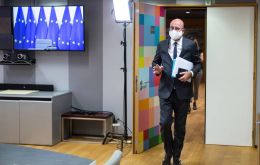
Brexit Britain is part of an “arc of instability” that has emerged around the European Union, the bloc's chairman said on Monday, ranking London's decision to leave the EU along with threats from Turkey, Russia, Libya and Syria.
-
Monday, September 28th 2020 - 16:32 UTC
Latino business owners thrive in the United States

Whilst the United States economy is taking a hit due to the recent situation around the world, there is positive news to be found.
-
Monday, September 28th 2020 - 09:31 UTC
It’s time to dump Argentina’s Peso
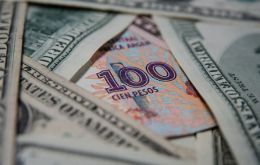
By Steve H. Hanke – In addition to facing an acute Covid-19 crisis, Argentina's deadbeat economy is collapsing, and, as usual, the inflation noose is around Argentines’ necks. Argentina’s official inflation rate for August 2020 is 40.70% per year. And, for once, Argentina’s official rate is fairly close to the rate that I calculate each day using high-frequency data and purchasing power parity theory, a methodology that has long proved its worth when compared with official statistics. Today, I measure Argentina’s annual inflation rate at 37%, but probably not for long — the noose is generally followed by the trapdoor.
-
Friday, September 25th 2020 - 09:35 UTC
Mercosur deal is “parked indefinitely”, agree German and Irish ministers
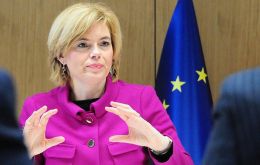
Ireland dairy industry has praised the German Agriculture Minister Julia Klöckner who has said she is not going to push forward efforts to seal the Mercosur Trade agreement and underlined she had serious concerns over the deal.
-
Friday, September 25th 2020 - 08:25 UTC
EU determined to resume post Brexit negotiations leaving aside “Johnson's bad feelings”

European Union negotiators have agreed not to allow their opposition to Boris Johnson's plan to break international law distract them from trying to secure a deal over the bloc's relationship with the UK after Brexit.
-
Thursday, September 24th 2020 - 09:31 UTC
Argentine currency worthless in Uruguay

For the second day running the Argentine Peso was virtually worthless in neighboring Uruguay foreign exchange houses. On Tuesday the Argentine Peso was worth zero, and on Wednesday there was a modest ten Uruguayan cents offered for the battered Argentine currency.
-
Thursday, September 24th 2020 - 09:24 UTC
Argentina economy contracts a record 19,1% in the second quarter

Argentina’s economy contracted a record 19.1% in the second quarter versus the same period a year earlier as the coronavirus pandemic crippled production and demand, though was slightly better than analyst forecasts.
-
Thursday, September 24th 2020 - 09:20 UTC
Falklands announces support schemes for the tourism industry
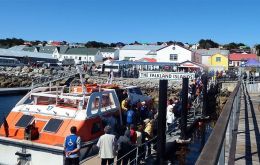
The Falkland Islands Government provided details on Wednesday of a range of support schemes designed specifically to mitigate the effects of the global pandemic on tourism businesses, operators, and employees over the next twelve months, as well as prepare the sector to take advantage of renewed demand in 2021 and beyond.
-
Thursday, September 24th 2020 - 09:00 UTC
New US sanctions on Cuba: ban on the import of cigars and liquors

US President Donald Trump announced new sanctions related to Cuba on Wednesday that will prohibit Americans from staying at properties owned by the Cuban government as well as the import of Cuban cigars and liquor.
-
Thursday, September 24th 2020 - 08:14 UTC
Planning for the Falklands 2021/22 season and beyond
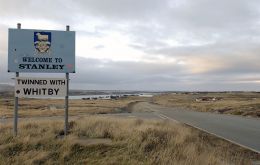
The Falkland Islands Tourist Board has also worked alongside the Government to identify ways in which it too could assist with helping position the sector to take advantage of demand in 2021/22 and beyond. To this end the tourist board has reallocated existing budgets and earmarked funds totaling £380,000 as follows:
